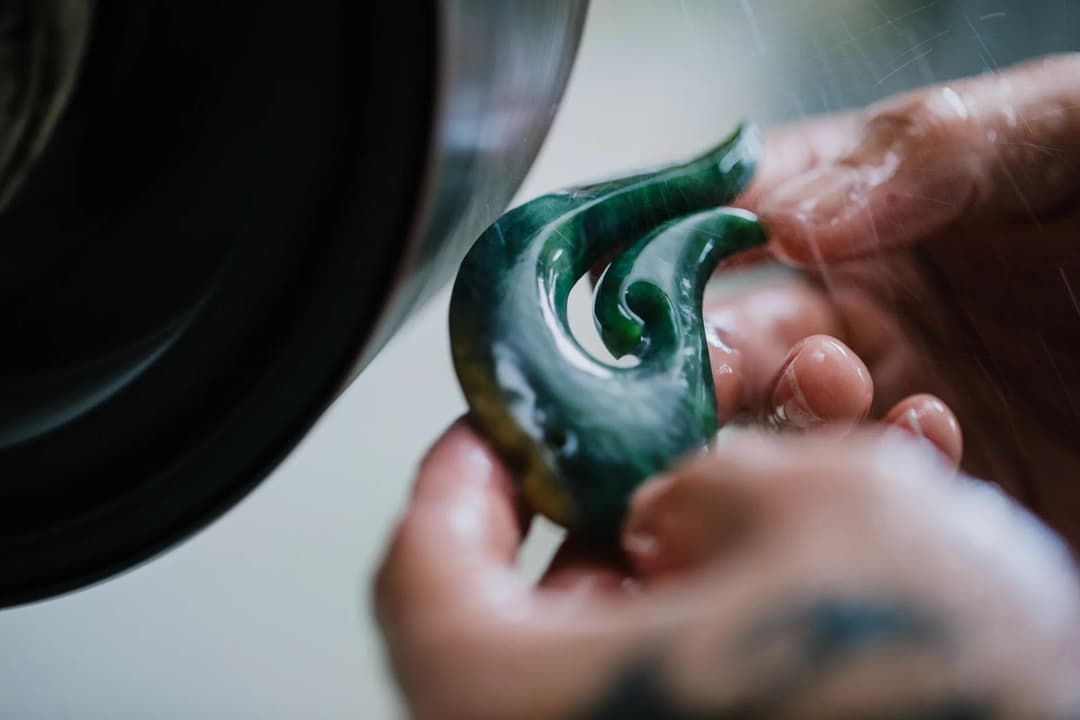

The fish hook shape of the Hei Matau finds its meaning and origins in Māori legend, which holds that the North Island of New Zealand was once a huge fish that was caught by the great mariner, Maui, using only a woven line and a hook made from the jawbone of his grandmother.
The Fish Hook denotes the importance of fishing to the Māori people of New Zealand and their strong relationship with the ocean and Tangaroa, the God of the sea.

Navigating by sea from Polynesia between 1100 and 1300 AD, Māori ancestors arrived in Aotearoa as skilled fishermen steeped in rich fishing traditions and practices. As the ocean was always a significant source of food and nourishment, they adapted to local conditions, species and materials and taught their fishing knowledge and skills to future generations. Kai moana (food from the sea), provided vital proteins and fats for tribe members, and Māori believed every fish in the sea was a descendant of Tangaroa, the God of the sea.
Māori used tools and tactics that rival modern recreational fishermen, and there were few marine species they could not catch. They caught small game fish such as kahawai and barracouta with pā kahawai (trolling lures) trolled behind waka (canoes), with fish attracted to flashes of colour from the iridescent pāua shell that lined the wooden shank of the lure. For larger prey such as hāpuku (groper), Māori used matau (fish hooks) made of bone, stone, shell or strong wood hardened by fire, with designs developed over thousands of years.
As the ocean is connected to the Gods, rituals, talismans, and other marks of respect are integral to the practice of fishing and tapu (spiritual restrictions) surround almost all aspects of fishing. Karakia (Māori prayers) are offered to Tangaroa and other Gods of the sea, inviting them to send a bounty of fish.

The Hei Matau we carve today pay respect to the rich history and culture of this practical fishing tool and the central nature of the ocean in Māori mythology. They are believed by many to grant strength, protection, prosperity, and safe travels to the wearer. Over time, jade artists have stylised the motif, yet traditional matau designs and Māori mythology continue to inspire the creation of pounamu Hei Matau.

